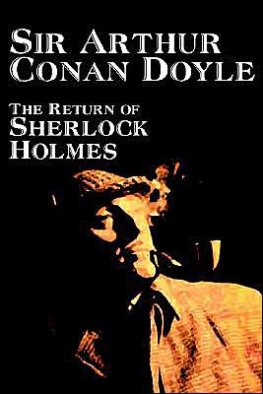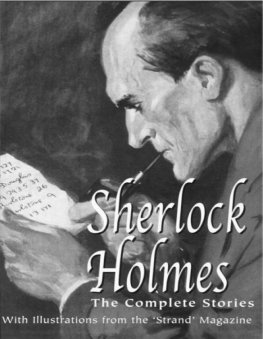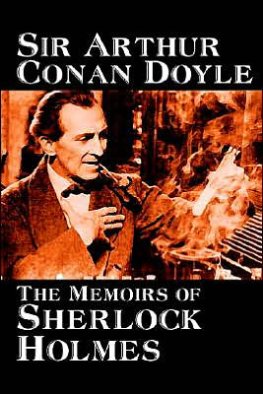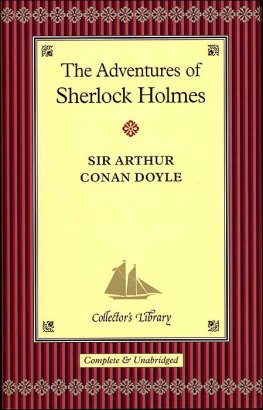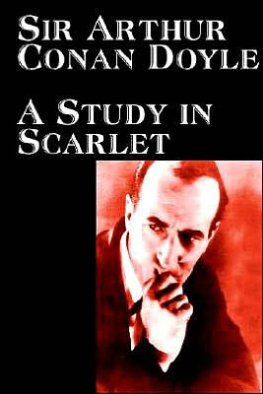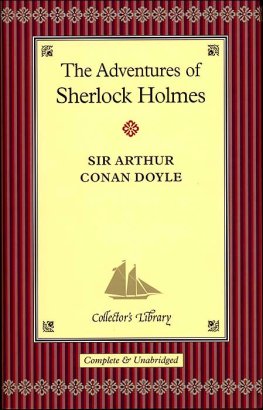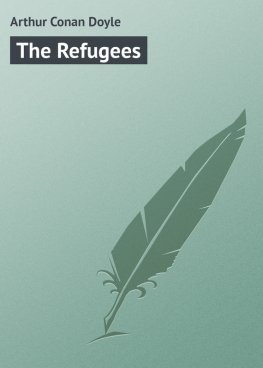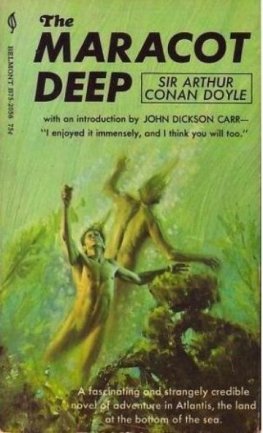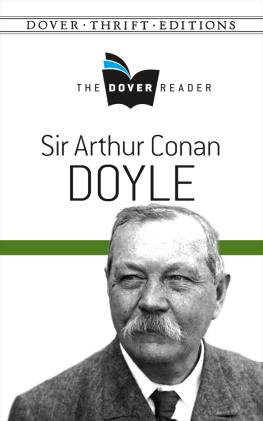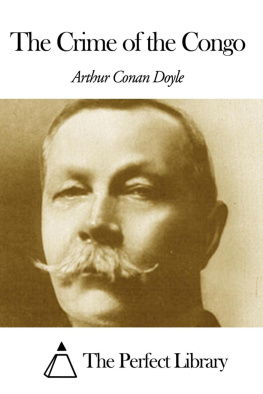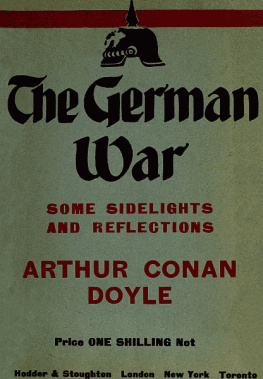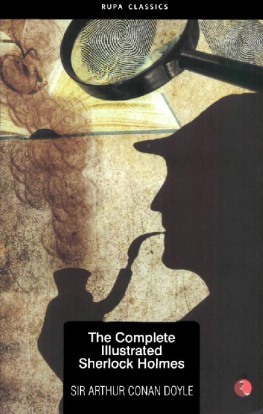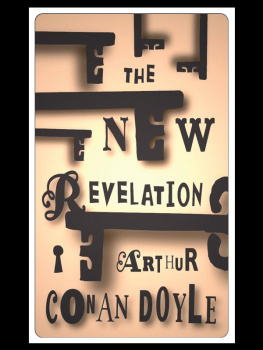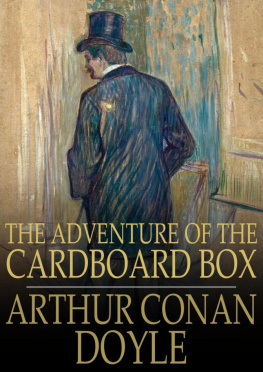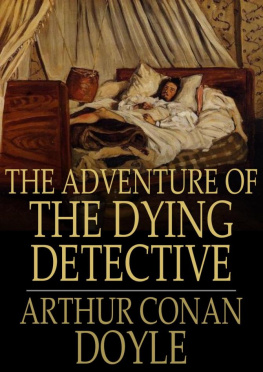Arthur Doyle - The Sign of Four
Here you can read online Arthur Doyle - The Sign of Four full text of the book (entire story) in english for free. Download pdf and epub, get meaning, cover and reviews about this ebook. genre: Detective and thriller. Description of the work, (preface) as well as reviews are available. Best literature library LitArk.com created for fans of good reading and offers a wide selection of genres:
Romance novel
Science fiction
Adventure
Detective
Science
History
Home and family
Prose
Art
Politics
Computer
Non-fiction
Religion
Business
Children
Humor
Choose a favorite category and find really read worthwhile books. Enjoy immersion in the world of imagination, feel the emotions of the characters or learn something new for yourself, make an fascinating discovery.

- Book:The Sign of Four
- Author:
- Genre:
- Rating:5 / 5
- Favourites:Add to favourites
- Your mark:
- 100
- 1
- 2
- 3
- 4
- 5
The Sign of Four: summary, description and annotation
We offer to read an annotation, description, summary or preface (depends on what the author of the book "The Sign of Four" wrote himself). If you haven't found the necessary information about the book — write in the comments, we will try to find it.
The Sign of Four — read online for free the complete book (whole text) full work
Below is the text of the book, divided by pages. System saving the place of the last page read, allows you to conveniently read the book "The Sign of Four" online for free, without having to search again every time where you left off. Put a bookmark, and you can go to the page where you finished reading at any time.
Font size:
Interval:
Bookmark:
Arthur Conan Doyle
The Sign of Four
Chapter 1 The Science of Deduction
Sherlock Holmes took his bottle from the corner of the mantel piece, and his hypodermic syringe from its neat morocco case. With his long, white, nervous fingers he adjusted the delicate needle and rolled back his left shirtcuff. For some little time his eyes rested thoughtfully upon the sinewy forearm and wrist, all dotted and scarred with innumerable puncture-marks. Finally, he thrust the sharp point home, pressed down the tiny piston, and sank back into the velvet-lined armchair with a long sigh of satisfaction.
Three times a day for many months I had witnessed this performance, but custom had not reconciled my mind to it. On the contrary, from day to day I had become more irritable at the sight, and my conscience swelled nightly within me at the thought that I had lacked the courage to protest. Again and again I had registered a vow that I should deliver my soul upon the subject; but there was that in the cool, nonchalant air of my companion which made him the last man with whom one would care to take anything approaching to a liberty. His great powers, his masterly manner, and the experience which I had had of his many extraor dinary qualities, all made me diffident and backward in crossing him.
Yet upon that afternoon, whether it was the Beaune which I had taken with my lunch or the additional exasperation produced by the extreme deliberation of his manner, I suddenly felt that I could hold out no longer.
"Which is it to-day," I asked, "morphine or cocaine?"
He raised his eyes languidly from the old black-letter volume which he had opened.
"It is cocaine," he said, "a seven-per-cent solution. Would you care to try it?"
"No, indeed," I answered brusquely. "My constitution has not got over the Afghan campaign yet. I cannot afford to throw any extra strain upon it."
He smiled at my vehemence. "Perhaps you are right, Wat son," he said. "I suppose that its influence is physically a bad one. I find it, however, so transcendently stimulating and clarify ing to the mind that its secondary action is a matter of small moment."
"But consider!" I said earnestly. "Count the cost! Your brain may, as you say, be roused and excited, but it is a pathological and morbid process which involves increased tissue-change and may at least leave a permanent weakness. You know, too, what a black reaction comes upon you. Surely the game is hardly worth the candle. Why should you, for a mere passing pleasure, risk the loss of those great powers with which you have been endowed? Remember that I speak not only as one comrade to another but as a medical man to one for whose constitution he is to some extent answerable."
He did not seem offended. On the contrary, he put his finger tips together, and leaned his elbows on the arms of his chair, like one who has a relish for conversation.
"My mind," he said, "rebels at stagnation. Give me prob lems, give me work, give me the most abstruse cryptogram, or the most intricate analysis, and I am in my own proper atmo sphere. I can dispense then with artificial stimulants. But I abhor the dull routine of existence. I crave for mental exaltation. That is why I have chosen my own particular profession, or rather created it, for I am the only one in the world."
"The only unofficial detective?" I said, raising my eyebrows.
"The only unofficial consulting detective," he answered. "I am the last and highest court of appeal in detection. When Greg son, or Lestrade, or Athelney Jones are out of their depths which, by the way, is their normal state the matter is laid before me. I examine the data, as an expert, and pronounce a specialist's opinion. I claim no credit in such cases. My name figures in no newspaper. The work itself, the pleasure of finding a field for my peculiar powers, is my highest reward. But you have yourself had some experience of my methods of work in the Jefferson Hope case."
"Yes, indeed," said I cordially. "I was never so struck by anything in my life. I even embodied it in a small brochure, with the somewhat fantastic title of 'A Study in Scarlet.' "
He shook his head sadly.
"I glanced over it," said he. "Honestly, I cannot congratulate you upon it. Detection is, or ought to be, an exact science and should be treated in the same cold and unemotional manner. You have attempted to tinge it with romanticism, which produces much the same effect as if you worked a love-story or an elopement into the fifth proposition of Euclid."
"But the romance was there," I remonstrated. "I could not tamper with the facts."
"Some facts should be suppressed, or, at least, a just sense of proportion should be observed in treating them. The only point in the case which deserved mention was the curious analytical reasoning from effects to causes, by which I succeeded in unrav elling it."
I was annoyed at this criticism of a work which had been specially designed to please him. I confess, too, that I was irritated by the egotism which seemed to demand that every line of my pamphlet should be devoted to his own special doings. More than once during the years that I had lived with him in Baker Street I had observed that a small vanity underlay my companion's quiet and didactic manner. I made no remark however, but sat nursing my wounded leg. I had had a Jezaii bullet through it some time before, and though it did not prevent me from walking it ached wearily at every change of the weather.
"My practice has extended recently to the Continent," said Holmes after a while, filling up his old brier-root pipe. "I was consulted last week by Francois le Villard, who, as you probably know, has come rather to the front lately in the French detective service. He has all the Celtic power of quick intuition but he is deficient in the wide range of exact knowledge which is essential to the higher developments of his art. The case was concerned with a will and possessed some features of interest. I was able to refer him to two parallel cases, the one at Riga in 1857, and the other at St. Louis in 1871, which have suggested to him the true solution. Here is the letter which I had this morning acknowledging my assistance."
He tossed over, as he spoke, a crumpled sheet of foreign notepaper. I glanced my eyes down it, catching a profusion of notes of admiration, with stray magnifiques, coup-de-maitres and tours-de-force, all testifying to the ardent admiration of the Frenchman.
"He speaks as a pupil to his master," said I.
"Oh, he rates my assistance too highly," said Sherlock Holmes lightly. "He has coosiderable gifts himself. He possesses two out of the three qualities necessary for the ideal detective. He has the power of observation and that of deduction. He is only wanting in knowledge, and that may come in time. He is now translating my small works into French."
"Your works?"
"Oh, didn't you know?" he cried, laughing. "Yes, I have been guilty of several monographs. They are all upon technical subjects. Here, for example, is one 'Upon the Distinction be tween the Ashes of the Various Tobaccos.' In it I enumerate a hundred and forty forms of cigar, cigarette, and pipe tobacco, with coloured plates illustrating the difference in the ash. It is a point which is continually turning up in criminal trials, and which is sometimes of supreme importance as a clue. If you can say definitely, for example, that some murder had been done by a man who was smoking an Indian lunkah, it obviously narrows your field of search. To the trained eye there is as much differ ence between the black ash of a Trichinopoly and the white fluff of bird's-eye as there is between a cabbage and a potato."
"You have an extraordinary genius for minutiae," I remarked.
"I appreciate their importance. Here is my monograph upon the tracing of footsteps, with some remarks upon the uses of plaster of Paris as a preserver of impresses. Here, too, is a curious little work upon the influence of a trade upon the form of the hand, with lithotypes of the hands of slaters, sailors, cork cutters, compositors, weavers, and diamond-polishers. That is a matter of great practical interest to the scientific detective especially in cases of unclaimed bodies, or in discovering the antecedents of criminals. But I weary you with my hobby."
Font size:
Interval:
Bookmark:
Similar books «The Sign of Four»
Look at similar books to The Sign of Four. We have selected literature similar in name and meaning in the hope of providing readers with more options to find new, interesting, not yet read works.
Discussion, reviews of the book The Sign of Four and just readers' own opinions. Leave your comments, write what you think about the work, its meaning or the main characters. Specify what exactly you liked and what you didn't like, and why you think so.

